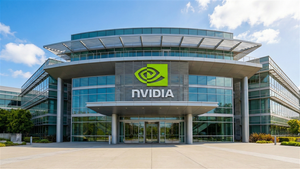
London, October 29, 2025 – The FTSE 100, London's benchmark stock index, has been on an exhilarating upward trajectory throughout October 2025, repeatedly smashing through previous records. Buoyed by a powerful trifecta of artificial intelligence (AI) advancements, rekindled global trade optimism, and a slew of robust corporate earnings reports, the index has reached unprecedented heights, signaling a resilient and confident UK market. As of Wednesday, October 29, the FTSE 100 was trading at an intra-day record of 9,770.04, reflecting a pervasive "risk-on" sentiment that has seen the index climb over 4% in the past month and nearly 20% year-to-date.
This impressive rally, however, is not without its nuances. While global AI enthusiasm has provided a significant tailwind, the FTSE 100's performance is also deeply rooted in the strong fundamentals of its diverse constituent companies and the tangible easing of international trade tensions. Investors are keenly observing whether this momentum can be sustained amidst lingering economic uncertainties and the potential for market corrections.
A Record-Breaking October: The Drivers Behind the Surge
The FTSE 100's journey to record highs has been a story of consistent upward momentum, punctuated by key developments across technology, trade, and corporate performance. The index first breached the 9,000 mark earlier in the year and has since continued its ascent, hitting 9,662 on October 24, primarily driven by optimism surrounding potential US-China trade breakthroughs. Despite minor fluctuations, the rally quickly regained strength, underscoring a market that appears adept at "looking through" short-term challenges.
Artificial intelligence continues to be a dominant global theme, propelling tech giants on Wall Street and influencing markets worldwide. While the FTSE 100 (UK: ^FTSE) may not boast as many pure-play AI behemoths as its US counterparts, several UK large-cap companies are actively integrating AI into their operations. For instance, London Stock Exchange Group (LSE: LSEG) has forged strategic partnerships with Microsoft (NASDAQ: MSFT) and Anthropic to leverage its trusted data for scaling AI in financial services, demonstrating how traditional firms are embracing AI to enhance profitability. However, concerns about a potential "AI bubble" persist, with experts acknowledging that UK stocks would not be immune to a global AI downturn.
Renewed optimism surrounding international trade negotiations, particularly hopes for breakthroughs in US-China trade talks, has provided a significant boost. Reports of preliminary agreements have eased tensions, leading to a robust rebound across European markets. This sentiment is particularly beneficial for FTSE 100 companies with extensive global supply chains and international presence, such as multinational corporations and exporters. The rally has seen sectors like mining and banking receive a considerable lift from these developments. Further fueling this optimism was the signing of a new trade framework around rare earths between President Trump and Japan's new Prime Minister Sanae Takaichi.
A string of robust corporate earnings reports has provided a solid fundamental underpinning for the rally. Several major players have exceeded market expectations, leading to upward revisions in their full-year guidance. Next (LSE: NXT) shares soared over 7% after raising its full-year pre-tax profit forecast to £1.14 billion, following impressive third-quarter sales growth. Pharmaceutical giant GSK (LSE: GSK) also saw its shares climb, lifting its 2025 earnings forecast after a strong third quarter. Mining and commodity trading firm Glencore (LSE: GLEN) advanced after tightening its annual production guidance, benefiting from record metal prices. Other notable performers include HSBC (LSE: HSBA), London Stock Exchange Group (LSE: LSEG), and Rentokil Initial (LSE: RTO), all reporting strong results and positive outlooks. This widespread corporate strength instills confidence that the rally is grounded in solid fundamentals.
Companies Navigating the New Landscape: Winners and Losers
The confluence of AI advancements, trade optimism, and robust corporate results is creating a dynamic environment where certain FTSE 100 companies are poised for significant gains, while others may face challenges if they fail to adapt.
Winners from AI Advancements: Companies actively integrating AI into their core operations are set to thrive. Sage Group (LSE: SGE), a leader in accounting software, is enhancing its offerings with AI, attracting new customers. Experian (LSE: EXPN), a data analytics giant, is leveraging AI for more refined predictive models. London Stock Exchange Group (LSE: LSEG) is strategically embedding its data into AI tools, solidifying its position in financial services. Companies like Halma (LSE: HLMA), specializing in safety and environmental technologies, are benefiting from the AI buildout as their products are essential for modern data centers. Furthermore, diversified miners like Rio Tinto (LSE: RIO), Anglo American (LSE: AAL), and Glencore (LSE: GLEN) are crucial for supplying the copper and other minerals needed for AI infrastructure, driving up commodity prices. Financial institutions like Barclays (LSE: BARC) are also expected to gain from AI-driven efficiency improvements.
Winners from Trade Optimism: The FTSE 100's multinational composition makes it highly sensitive to global trade. Mining companies, including Rio Tinto (LSE: RIO), Anglo American (LSE: AAL), Glencore (LSE: GLEN), and Antofagasta (LSE: ANTO), are direct beneficiaries as easing trade tensions boost demand, particularly from China, and drive up commodity prices. Oil majors like Shell (LSE: SHEL) and BP (LSE: BP) also benefit from higher crude prices linked to increased global economic activity. Retailer Next (LSE: NXT), with its strong overseas sales growth, is well-positioned to capitalize on a positive global trade environment. Globally focused banks like HSBC (LSE: HSBA) also stand to gain from improved international trade flows.
Winners from Robust Corporate Results: Companies demonstrating strong individual performance contribute directly to the rally. Next (LSE: NXT) has consistently exceeded expectations with disciplined inventory control and effective digital marketing. GSK (LSE: GSK) has shown double-digit growth in key drug areas, improving investor sentiment. RELX (LSE: REL), an information and analytics group, reported strong growth driven by its AI-powered platforms. Rentokil Initial (LSE: RTO) delivered a strong Q3 update, while Rolls-Royce (LSE: RR) has seen advances due to demand in aerospace and defense.
Potential Losers or Those Facing Challenges: Companies slow to adopt AI or with outdated business models risk lagging behind. Sectors like traditional news media and print distribution face significant structural pressures. WPP (LSE: WPP), an advertising agency, has already issued a profit warning, partly attributed to clients using AI for in-house creative work, highlighting AI's disruptive potential. Domestically focused companies reliant on weaker UK consumer spending, especially those without strong international diversification, might find it harder to sustain growth. Housebuilders, for example, have been at the bottom of the FTSE 100 leaderboard. Furthermore, companies that do not prioritize ethical AI implementation may struggle with employee satisfaction and retention, while excessive reliance on a few external AI service providers poses systemic risks, as warned by the Bank of England.
Wider Significance: Reshaping Industries and Policy
The FTSE 100 rally, driven by AI, trade, and corporate strength, is not an isolated event but rather a significant indicator within broader global industry trends, with potential ripple effects and policy implications.
The rally signifies a continued global shift towards a knowledge-based economy, where intellectual property and technological prowess are key value drivers. While the FTSE 100 historically has lower tech exposure compared to US indices, its current performance demonstrates a growing adaptation and integration of AI across diverse sectors, from finance to pharmaceuticals. A sustained period of trade de-escalation, particularly between the US and China, could reinvigorate globalization, fostering cross-border investments and economic interdependence, contrasting with recent protectionist trends. However, underlying uncertainty regarding global trade wars persists.
The ripple effects are wide-ranging. Companies within the FTSE 100 benefiting from AI adoption are compelling competitors to accelerate their own digital strategies. Increased demand for complementary services and infrastructure, such as data centers and renewable energy solutions, is benefiting partners of tech-driven companies. Reduced trade tensions benefit global logistics and shipping firms, though potential tariffs could still impact UK exports to the EU. The rally may also lead to a reallocation of capital towards sectors perceived as future-proof, especially those heavily investing in AI.
Regulatory and policy discussions are rapidly evolving in response. The UK government is pursuing a "pro-innovation" approach to AI regulation, balancing progress with systemic risk management. A new AI Bill, expected in 2025, will likely focus on AI safety and put voluntary commitments by leading AI companies on a statutory footing. The Bank of England (BoE) is actively shaping responsible AI adoption while managing financial stability risks, particularly concerns about operational reliance on third-party providers. The EU AI Act, with its progressive applicability, also impacts UK businesses supplying AI systems into the EU. Furthermore, debates continue in the UK regarding AI and copyright, with further government reports expected in 2026. On the trade front, the UK's new 10-year Trade Strategy (June 2025) emphasizes AI's role in reshaping trade flows, while a more stable trade environment could reduce the impetus for new tariffs.
Historically, stock market rallies driven by technological shifts (like the dot-com boom), trade liberalization, and strong corporate earnings are recurring phenomena. While parallels to the dot-com bubble are sometimes drawn, today's AI "hyperscalers" are established, profitable businesses, suggesting a more fundamentally sound foundation for the current AI-driven enthusiasm.
What Comes Next: Opportunities and Challenges Ahead
The FTSE 100's impressive rally sets the stage for a period of both opportunities and challenges, with short-term consolidation likely and long-term growth projected, albeit with caveats.
In the short-term, the rally is fueled by expectations of interest rate cuts from the Federal Reserve and potentially the Bank of England, easing trade tensions, strong corporate earnings, and a weaker pound sterling benefiting multinational companies. However, technical indicators like an overbought Relative Strength Index (RSI) suggest that a period of consolidation or a pullback could occur before further gains.
Looking to the long-term, forecasts remain cautiously optimistic. Some models predict the FTSE 100 could reach 10,470 points in the next 6-12 months and potentially 11,000 by 2030. Schroders expects earnings per share to rise significantly in 2026, indicating regaining corporate profit momentum. The FTSE 100's defensive tilt, with heavy weighting in consumer staples, utilities, banking, oil, and mining, could provide resilience in uncertain markets. Its attractive dividend yields also continue to draw income-seeking investors. However, this defensive composition might also limit its upside compared to more growth-oriented, AI-linked global indices.
Strategic pivots will be crucial for FTSE 100 companies. Diversification and cost management will be key for commodity-exposed sectors. Capitalizing on sustained demand for critical minerals, particularly those essential for AI infrastructure, will be vital for miners. Companies across all sectors must continue to adapt and integrate AI to enhance efficiency, customer engagement, and financial performance, focusing on ethical implementation that complements human capabilities. ESG considerations and evolving regulatory frameworks, such as new climate transition plan mandates, will also necessitate strategic adaptations. Merger-driven growth and financial sector navigation of regulatory shifts are also anticipated.
Market opportunities include defensive sectors, the UK market's value and income potential, and the projected outperformance of small and mid-cap companies in dividend yields. Government plans for infrastructure and green energy also present investment avenues. However, challenges loom, including sticky inflation potentially leading to higher-for-longer interest rates, a global economic slowdown, and geopolitical risks. The FTSE 100's dependency on commodity prices also exposes it to market volatility.
Potential scenarios related to AI, trade, and corporate results include AI continuing to drive innovation and efficiency, but with lingering concerns about a potential "AI bubble." Easing US-China trade tensions could boost global trade, but renewed protectionism or new sanctions would have negative impacts. Corporate results will likely remain mixed, with sectoral divergence, and share buybacks and special dividends expected to remain significant components of shareholder returns.
Wrap-up: A Resilient Market in a Dynamic Era
The FTSE 100's rally in late 2025 marks a period of significant market strength and investor confidence, driven by the transformative power of AI, a welcome de-escalation in global trade tensions, and a solid foundation of robust corporate earnings. The index's "old-fashioned" composition, paradoxically, has played a role in its resilience, benefiting from higher interest rates (for banks) and rising commodity prices (for miners). This near-universal upswing represents a widespread opportunity for investors, marking a rebound from earlier uncertainties.
Moving forward, the market will continue to navigate a dual narrative: the undeniable optimism fueled by technological progress and trade peace, alongside underlying anxieties about inflation, potential market corrections, and geopolitical stability. The lasting impact of this rally will largely depend on how effectively FTSE 100 companies adapt to and integrate AI for sustainable productivity gains, or conversely, face disruption if they fail to innovate.
Investors should remain vigilant in the coming months. Key indicators to watch include the monetary policy decisions and forward guidance from the Federal Reserve and the Bank of England, particularly regarding interest rate cuts. Further developments in US-China trade relations, especially any concrete outcomes from the preliminary deal framework, will be highly influential. Upcoming Q4 2025 corporate earnings reports and forward guidance will be crucial for justifying current market valuations. The UK Autumn Budget on November 26, 2025, could also introduce significant policy changes affecting consumer spending and specific sectors. Finally, investors should continue to assess the genuine integration and profitability of AI across industries, discerning sustainable growth from speculative exuberance, and be prepared for potential short-term market consolidation as some technical indicators suggest overbought conditions.
This content is intended for informational purposes only and is not financial advice






